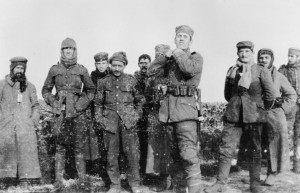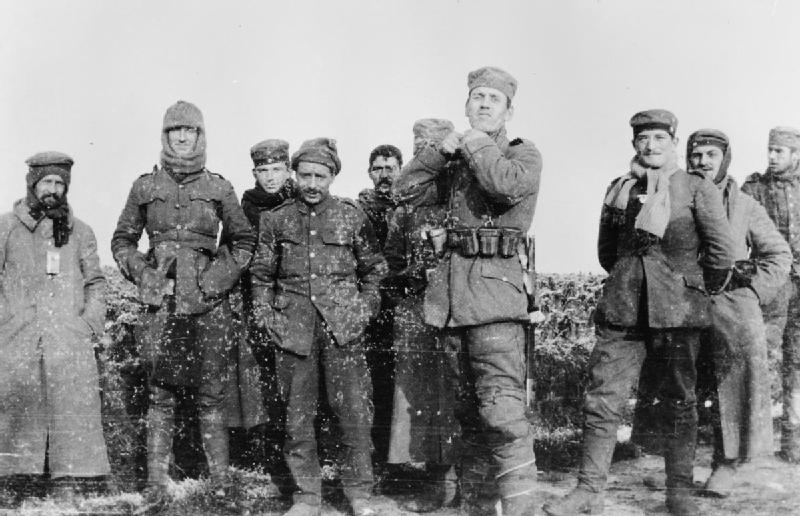
In December of 1914, around 100,000 soldiers from Britain and Germany spontaneously left their trenches during World War I and fraternized in no man’s land. They exchanged gifts (such as they had) and sang songs. This event is known as the Christmas Truce. The truces were varied; in some sectors there was still fighting, in others the truce lasted until New Year’s Day. To a lesser extent, there were also truces between the French and Germans elsewhere on the Western Front and the Austrians and the Russians on the Eastern front.
It’s important to emphasize the spontaneous nature of this truce. Despite attempts by Pope Benedict XV, the belligerents of World War I refused to call a temporary cessation of hostilities. While of course the commanding officers opposed the truce, other notable opponents were a young Charles DeGaulle and a young Adolf Hitler. But thousands of rank and file soldiers, acting against orders and in violation of military discipline, chose to recognize their combatants as fellow human beings.
In military lingo, this is “fraternization” a serious problem for fighting a war. Mostly, when we hear that word in our culture, it’s associated with risk of leaking sensitive information, a problem for a military that could lead to lives lost. But the Christmas Truce represents another issue with fraternization: it can lead to lives saved.
That’s a problem when you’re trying to fight a war. “I want you to remember that no bastard ever won a war by dying for his country. He won it by making the other poor, dumb bastard die for his country,” George C. Scott as Gen. George Patton tells us in the eponymous film. Fraternization makes it extremely difficult to do the latter; and this was during a war when only about 15 to 20 percent of soldiers fired their guns at enemies in view (it’s a testament to our ability to commit carnage that close to 31 million soldiers were killed or wounded during the four years of the war).
That’s ultimately the problem. The blame for a big disastrous war like World War I definitively falls on the shoulders of the warmongering politicians who rattled sabers and pushed it forward and negotiated the secret alliance system that made it inevitable. But it’s impossible to fight without millions of acts of cooperation from ordinary, everyday soldiers. When that cooperation isn’t there, the war doesn’t happen.
What the Christmas Truce demonstrates is that “peace on earth” is more than just a Christmastime slogan; it’s an actual possibility. And that’s not pie-in-the-sky thinking. We live in perhaps the most peaceful time in all human history. For example, the amount of military casualties in both the Afghan and Iraq wars (a nearly 13-year long period of conflict) are far fewer than the amount of military casualties that were snuffed out in seven days in World War I.
It’s possible because we make it so. We may lament the distancing of the average American from the average soldier, but in many ways, this is a reflection of the peaceable nature that’s now seized hold of us; one where war is a ridiculous way to solve global problems.
Play us out, John McCutcheon:

